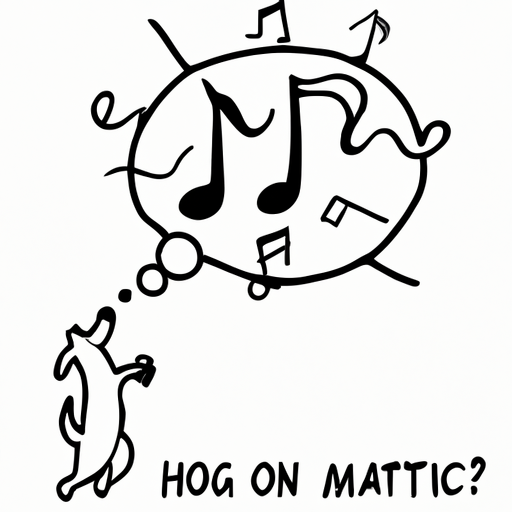Introduction
You’ve probably witnessed this amusing yet puzzling phenomenon at some point. Your dog, seemingly entranced by the melody of your favorite tune, suddenly starts to howl. But why does this happen? Let’s dive into the fascinating world of canine communication and learn more.
The Call of the Wild
Firstly, let’s remember that your dog’s ancestors are wolves. Howling is deeply ingrained in their genetic memory. It’s a powerful form of communication that can be heard for miles. When your dog hears music, especially high-pitched tunes, it can mimic the sound of another canine’s howl, triggering their instinct to respond.
- Canine Communication: Wolves use howling as a form of long-distance communication.
- Instinctual Response: The sound of music can trigger your dog’s instinct to respond to what they perceive as another canine’s call.
The Emotional Response
Secondly, dogs are emotional creatures. Like us, they can be moved by the rhythm and melody of music. Howling can be a way for them to express their feelings, whether it’s joy, excitement, or even distress. This is especially true if the music is loud or has certain frequencies that can be uncomfortable for their sensitive ears.
- Joy and Excitement: Your dog might howl out of sheer happiness or because they are stimulated by the music.
- Distress: If the music is too loud or has certain frequencies, it can cause your dog discomfort, leading to howling.
The Attention-Seeking Behavior
Thirdly, your dog might simply be seeking your attention. Dogs are social animals, and they love being the center of attention. If they notice that their howling gets a reaction from you, they might do it more often, especially when you’re distracted by something like music.
| Attention-Seeking Behavior | Example |
|---|---|
| Howling for Attention | Your dog might howl at music to get your attention, especially if you’re not paying enough attention to them. |
The Bonding Experience
Finally, howling can be a bonding experience for your dog. Howling is a social behavior in the wild, and when your dog howls along to music, they might feel like they’re part of the pack. This could be especially true if you or other family members sing or howl along with the music.
- Pack Behavior: Howling can make your dog feel like a part of the pack, strengthening their bond with you.
- Family Singalong: If you or other family members join in the howling, it can be a fun and bonding experience for your canine friend.
FAQs
1. Why does my dog howl when I play the piano?
Your dog might perceive the sound of the piano as another canine’s howl, triggering their instinct to respond.
2. Is it bad if my dog howls at music?
Not necessarily. It can be a normal response unless the howling is excessive or seems to be caused by distress.
3. Can certain types of music cause my dog to howl?
Yes, high-pitched music or instruments can often trigger howling. However, each dog is unique, and what triggers one might not trigger another.
4. How can I stop my dog from howling at music?
If your dog’s howling is causing a problem, you might want to consider training them to respond to a ‘quiet’ command, or adjusting the type of music or volume. Always consult a professional if you’re unsure.
5. Is my dog in pain if they howl at music?
Not necessarily. While pain can cause howling, if your dog only howls to music, it’s more likely due to one of the reasons discussed above. However, if you’re concerned, it’s always best to consult your vet.
Understanding your dog’s behavior can help you deepen your bond with them. So next time your dog howls at your favorite tune, remember, they’re not just being noisy – they’re communicating in their own special way.



